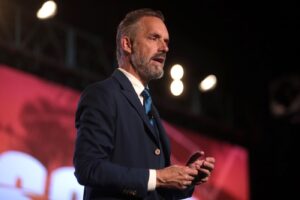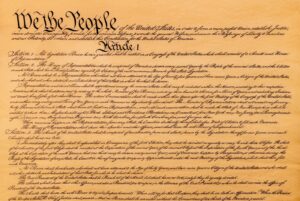In the decade ahead, America will witness great opportunities for the expansion of democracy in the world. With memories of the scourge of communism, and I fear even of 9/11 itself, fading, and with the difficulties of our wars in Afghanistan and Iraq fresh in our minds, some may question whether the expansion of democracy is even a desirable objective.
I say: it is.
A strategy of democracy promotion does not have to employ the force of arms, but it should deploy the force of ideas. The record of the twentieth century, in Germany, Italy, and Japan, in Spain and Korea, and in the countries that emerged from behind the Iron Curtain, demonstrates that the ideal of free self-government can have powerful and beneficial effects, for the countries that undergo such changes, for the world at large, and for the United States.
What we must learn from our difficult wars in Afghanistan and Iraq is not that leaving others in tyranny is easier and therefore better. Instead, learning from these experiences, we must come to terms with how profoundly complex human societies are, and see our way to alternative paths forward rather than lose our sense of direction.
Start your day with Public Discourse
Sign up and get our daily essays sent straight to your inbox.As Americans prepare to vote in the 2012 presidential election, it is important that they consider which candidates would be leaders capable of identifying and persevering along such paths of “soft power,” seizing these opportunities to expand democracy, and recognizing the danger of failing to do so.
Three components of international democracy promotion have particular strategic significance for America today, namely: our credibility, our Constitution, and our communication.
Credibility
America’s credibility in the world is a powerful asset when it is strong, and it is painfully difficult to recover when lost. Two aspects of American international credibility that need reinvigoration are our financial reliability and the alignment of our actions with our values.
The enormous scale of the U.S. national debt—and Congress’s ongoing inability to grapple seriously with it—is harmful to Americans at home and to our foreign credibility. The spending and borrowing habits of the American government constitute a reckless, self-destructive “perpetual binge.” For the wellbeing of coming generations and for American credibility in the world now and in the future, we need a president who understands that one cannot spend the nation’s resources as though there will never be any reckoning with the consequences.
As for our values, the foundation of credibility is integrity. Putting American values into action in the U.S. is not simply the right thing to do, but it is also integral to enabling foreign audiences to understand these values. Governor Chris Christie (R-NJ) recently provided a fine example of this when defending a recent judicial appointment, Sohail Mohammed, who seemed to be drawing fire simply because of his religion (he is Muslim). Gov. Christie adeptly moved the discussion away from prejudice and back to qualifications, merit, fairness, and respect for public service. In case anyone may have been questioning whether America is a land of opportunity for all, including for religious minorities, Gov. Christie, by putting American values into action, answered resoundingly, “Yes, it is.”
Constitution
As the populations of Arab states strive, with democratic fervor, to extricate themselves from decades of authoritarianism, it is especially important for us to highlight the vital importance of constitutional democracy. In these potential democracies, where fundamentally anti-democratic forces are at work, good constitutions will be among the best protections available for the noble aspirations of those who strive for genuine, sustainable democracy.
Good constitutions can foil the efforts of those who seek to win elections only to eliminate them once they gain power. America needs a leader who understands the vital role of our own Constitution in providing a foundation and framework for an enduring, well-ordered democracy at home. America’s next leader must not be shy about promoting constitutional democracy abroad.
America also needs a president who recognizes that religious freedom is one of the great success stories of America’s constitutional democracy. At the same time, the next president should remember that this freedom is routinely crushed and trampled on globally today. We need a president who values religious freedom, first by calling it what it is. (The Obama administration has often referred only to the “freedom of worship,” which is only one aspect of religious freedom, not the whole of it.) We need a president who appreciates a robust conception of religious freedom, who will defend it at home, and who will help our foreign partners develop constitutional protections for religious freedom in their countries, as well.
Communication
Responsible stewardship of American influence includes recognizing that prudent communication is one of the most effective soft-power tools available. In American foreign engagement, executive-level leadership in strategic communication is needed.
A prime example right now of the importance and sensitivity of strategic communication is Syria. This Middle Eastern country, currently roiling with demonstrations and resistance to the Assad dictatorship, is strategically important to the future of the region and to the future of Israeli-Palestinian relations. The Assad regime is running a public communication offensive by repeating its mantra that the unrest is due only to foreign-influenced, armed militias. The U.S. has an absolutely vital strategic interest in the emergence of countervailing narratives and yet currently has seriously low credibility in the region. This is a moment for presidential leadership that can handle volatile complexity.
Excellence in communication also requires knowing one’s audience. One audience-awareness failure in recent years has been America’s dismissal of the religious and family values of vast swaths of foreign populations. Pushing policies that are rooted solely in Washington, D.C.-designed objectives, without any connection to or consideration of foreign populations, can have a long-term deleterious impact. As an example of this, a recently published history by Mara Hvistendahl of the spread of sex-selection (actually, femicide) abortion globally offers a jarring account of this phenomenon and the role of American abortion-promotion overseas in facilitating it. Even if we take with a grain of salt her vehement conviction that “it’s all the West’s fault,” we must recognize that past American short-sightedness in abortion promotion abroad has led to generations-long tragic consequences and long-term undermining of American credibility. American values include life, liberty, and the pursuit of happiness, and our actions are an important means of communicating these to the rest of the world.
2005, 2012, and Beyond
In his memoir Decision Points, President George W. Bush writes about the importance of “advancing liberty and hope as an alternative to the enemy’s ideology of repression and fear.” Bush saw that this was both the right thing to do and part of “a strategy to protect the country.”
In Bush’s 2005 inaugural address, he stressed that “as long as whole regions of the world simmer in resentment and tyranny—prone to ideologies that feed hatred and excuse murder—violence will gather…and cross the most defended borders…There is only one force of history that can break the reign of hatred and resentment, and expose the pretentions of tyrants, and reward the hopes of the decent and the tolerant, and that is the force of human freedom.”
America’s credibility, Constitution, and communication offer us ways to engage effectively in defense of our nation and as partners in the human quest for freedom. Intellectually grasping and pragmatically leveraging these soft-power capacities will require the ability to exercise nuanced, complex decision-making. America needs executive-level leadership that is up to the task.
Jennifer S. Bryson is Director of the Islam and Civil Society Project at the Witherspoon Institute in Princeton, NJ. This essay is part of the 2012 Election Symposium. Read all of the entries here:
- Ryan T. Anderson, “Liberty, Justice, and the Common Good:
Political Principles for 2012 and Beyond” - O. Carter Snead, “Protect the Weak and Vulnerable:
The Primacy of the Life Issue” - Maggie Gallagher, “Defend Marriage: Moms and Dads Matter”
- Samuel Gregg, “Fix America’s Economy:
Two Principles for Reform” - Ed Whelan, “Defend Our Laws: Justice Matters”
- Helen Alvaré, “Uphold Conscience Protection:
Religious Freedom’s Contribution to the American
Experience and Threats to its Survival” - Jennifer Bryson, “Promote Democracy:
Start at Home but Don’t Stay at Home” - Yuval Levin, “Heal the Sick and Reduce the Debt:
The Moral Economy of the Healthcare Debate” - Jane Robbins, “Empower Parents:
Return Educational Policy to the States” - Patrick Trueman, “End Child Pornography:
Enforce Adult Pornography Laws” - Laura Lederer, “End Human Trafficking:
A Contemporary Slavery” - Robert P. George, “Reflections of a Questioner:
The Palmetto Freedom Forum Revisited”












